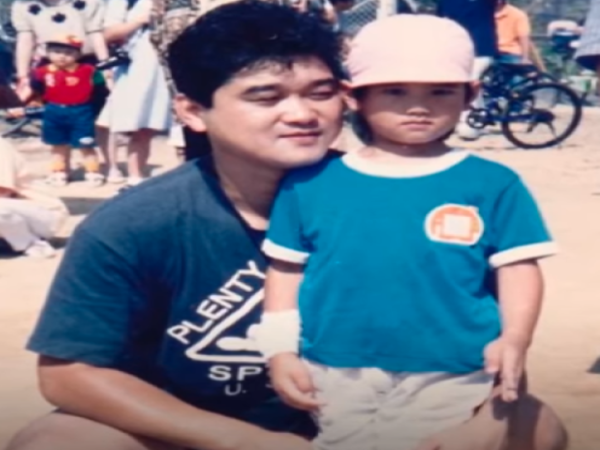Toru Otani: The Man Behind Shohei Ohtani’s Rise to Baseball Greatness
How a devoted father, former player, and disciplined coach shaped one of MLB’s most extraordinary athletes

Toru Otani, father of MLB superstar Shohei Ohtani, is a former baseball player from Japan’s industrial leagues whose mentorship was pivotal in shaping his son’s legendary career. Known for his disciplined coaching, technical expertise in both pitching and hitting, and a deep-rooted respect for the game, Toru instilled in Shohei the skills, work ethic, and mental toughness required to succeed at the highest level of baseball. His hands-on training, ethical guidance, and supportive parenting helped transform Shohei into one of the most versatile and dominant players in modern Major League Baseball.
Early Life and Background of Toru Otani
Toru Otani was born in Japan and developed a love for baseball at a young age, just like many children growing up in a country where the sport holds a special cultural significance. While specific details about his early childhood remain private, it is known that he pursued baseball with great passion and dedication, eventually playing in Japan’s industrial leagues—a competitive level of play sponsored by companies where athletes balance work and sport.
As an outfielder, Toru displayed strong athletic ability, discipline, and a deep understanding of the game’s fundamentals. His career, however, was cut short by a shoulder injury in his mid-twenties. Though his dreams of playing professionally were halted, he carried forward the lessons learned on the field into his next—and perhaps more impactful—role: being a coach and mentor to his children, especially his youngest son, Shohei.
Life in the Industrial Leagues
The industrial leagues in Japan are a unique platform where talented players often hone their skills while working for corporate sponsors. Toru’s time in these leagues not only allowed him to maintain a high level of competition but also taught him values that would later shape his coaching philosophy:
Work Ethic: Balancing work duties with athletic training instilled in Toru the importance of discipline and time management.
Team Spirit: Playing for corporate-sponsored teams emphasized loyalty, respect, and teamwork.
Resilience: Competing in a demanding environment prepared him to handle adversity—something he passed down to Shohei.
These principles became the backbone of the training methods he used with his son.
Toru Otani as a Father and Coach
When Shohei was born on July 5, 1994, Toru was ready to pass on his passion for baseball. From a young age, Shohei was introduced to the sport through simple throwing and batting exercises. Toru quickly recognized his son’s natural athletic ability and began to refine his skills systematically.
Shohei has often recalled that when they were on the field, Toru was not “Dad”—he was “Coach.” This professional boundary helped maintain a structured environment where lessons could be taught without favoritism or leniency.
Toru’s coaching style included:
Technical Drills: Emphasis on proper pitching mechanics and batting form.
Mental Preparation: Encouraging Shohei to stay focused under pressure.
Game Awareness: Teaching strategies to read opponents and adapt mid-game.
Discipline and Ethical Approach
One of Toru’s most important contributions was instilling a moral compass in Shohei’s career. Toru believed that talent must be paired with integrity, humility, and respect for the game.
He kept a training notebook where he recorded Shohei’s performance notes after games and practices. These included feedback like “maintained great control through three innings” or “chased too many high pitches.” This written dialogue became a way for father and son to communicate constructively about performance improvement.
The core rules in Toru’s philosophy were:
Always Hustle: Never walk on the field—run.
Be Loud and Energetic: Show presence and support for teammates.
Give Full Effort in Practice: Treat practice like a real game.
Shohei’s Multi-Position Development
Toru’s own background as an all-around athlete helped him guide Shohei into becoming a rare two-way player—a dominant pitcher and a power-hitting slugger. While most young players specialize in one role, Toru encouraged Shohei to keep developing both skill sets.
This dual training was rigorous:
On pitching days, Toru focused on mechanics, release points, and pitch control.
On hitting days, he worked on swing speed, timing, and pitch recognition.
On rest days, they worked on fielding drills and agility training.
This approach laid the foundation for Shohei to eventually become MLB’s most celebrated two-way player since Babe Ruth.
Family Athletic Influence
Toru’s wife, Kayoko Otani, also brought athletic experience into the household. She was a competitive badminton player at the national high school level in Japan. Her speed, agility, and discipline provided another role model for Shohei.
The Otani household was built around sports values—early morning practices, healthy living, and a focus on education. Shohei’s older brother, Ryuta, played baseball in the industrial leagues as well, and his older sister, Yuka, was active in sports. This environment created a natural support system for Shohei’s ambitions.
Height and Physical Presence
While Toru’s exact height is not publicly recorded, it is known that Shohei’s 6’4” frame comes partly from his father’s tall and athletic build. Toru’s physical presence, combined with his deep understanding of baseball mechanics, allowed him to physically demonstrate techniques to Shohei during training sessions.
Lessons Beyond Baseball
Toru’s influence extended far beyond batting cages and pitching mounds. He taught Shohei the importance of:
Adaptability: Being able to adjust to different opponents and situations.
Perseverance: Handling failure with grace and using it as a tool for improvement.
Humility: Treating every player—from little leaguers to pros—with respect.
These lessons prepared Shohei not only for baseball success but also for the cultural transition from Japan to the United States.
From Japan to MLB: Toru’s Role in the Transition
When Shohei made the leap from Japan’s Nippon Professional Baseball (NPB) to MLB, the challenges were immense: cultural adaptation, language barriers, and a higher level of competition. Toru’s earlier lessons in resilience and focus became invaluable.
He advised Shohei to keep his preparation habits consistent and to approach MLB with the same respect and effort as he did Japanese baseball. This stability helped Shohei quickly establish himself as a star in the Los Angeles Angels organization and later with the Los Angeles Dodgers.
A Legacy Beyond Numbers
While Toru never played professionally at the highest level, his legacy is cemented in his son’s achievements:
Multiple MLB MVP Awards
Record-breaking pitching and hitting statistics
Global fanbase and cultural impact
For Toru, the victories go beyond trophies. His pride lies in knowing his son plays with the same integrity and respect that he himself valued as a player.
Best Video Game Consoles (Bonus Segment)
While Toru’s life revolves around sports, for many fans and athletes alike, downtime is often spent enjoying another competitive world—video games. As of 2025, here are the best video game consoles to consider:
PlayStation 5 Slim – Compact design with cutting-edge performance and exclusive titles.
Xbox Series X – Powerful 4K gaming with a vast library through Game Pass.
Nintendo Switch 2 – Hybrid portability with improved graphics and gameplay features.
PlayStation 5 Pro – Enhanced performance for high-end gamers seeking top visuals.
Steam Deck OLED – Portable PC gaming with a vibrant OLED display.
Whether it’s sports simulations like MLB The Show or action-adventure titles, these consoles deliver immersive gaming experiences.
Conclusion
Toru Otani’s story is one of quiet but powerful influence. He transformed personal setbacks into coaching wisdom, raising not just a son but a world-class athlete. Through disciplined training, moral guidance, and unwavering support, Toru helped Shohei Ohtani rise to become one of the greatest baseball players of his generation.
His legacy is proof that behind every extraordinary athlete, there’s often a mentor whose dedication shapes the path to greatness. For Shohei, that mentor is—and always will be—his father, Toru Otani.



